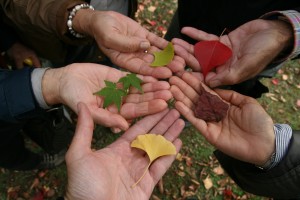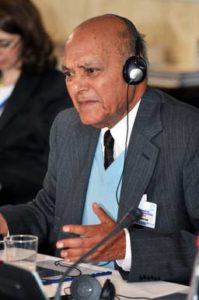
Tolerance is respect, acceptance and appreciation of the rich diversity of our world’s cultures, our forms of expression and ways of being human.” – Declaration of Principles on Tolerance.
On the occasion of International Day for Tolerance on November 16, UNESCO awarded the 2020 edition of the UNESCO-Madanjeet Singh Prize for the Promotion of Tolerance and Non-Violence to the nongovernmental Centre Résolution Conflits (Centre for Resolution of Conflicts – CRC) in the Democratic Republic of Congo.
The international Jury of the Prize recommended the CRC in recognition of its work for the defence of human rights, its “tireless [commitment to the] rescue of child soldiers from militia groups, and their rehabilitation and reintegration into their home communities. [CRC] also brings together communities from different tribes to live together in peace by conducting special training for this purpose.”
CRC negotiates and builds trust with militia leaders while collaborating with child protection agencies. It has helped nearly 1,000 ex-child soldiers return to peaceful life in their communities since 2011. CRC also provides them with psychosocial support to help them overcome trauma. Besides, it also trains agricultural cooperatives to promote tolerance and build mutual understanding between different communities. It has provided 40 agricultural communities with training in new agricultural techniques, financial management and peaceful conflict resolution between 2014 and 2018, helping almost 2,000 people increase their income and learn to trust ex-combatants.

This brings focus on the prize itself, largely because of its Indian connection. The Lahore-born Madanjeet Singh (born on April 16, 1924) had breathed his last on January 6, 2013 in Beaulieu-sur-Mer, France. He was an Indian diplomat, artist, writer and public figure. An author of several books on art and other subjects, closely interwoven with UNESCO’s programmes, principles and ideals, he had served as India’s Ambassador in Asia, South America, Africa and Europe. Some of his edited works included The Sun: Symbol of Power and Life, Renewable Energy of the Sun, Sun In Myth and Art. His publications included: Culture of the Sepulchre (2012) (his experiences as Indian Ambassador to Uganda at the time of Idi Amin), Kashmiriyat – The pluralistic Sufi-Bhakti-Rishi Culture, (2009), SASIA Story UNESCO (2005), Himalayan Art (UNESCO art books series), (1968).
In 1995, in recognition of his lifelong devotion to the cause of communal harmony and peace, the UNESCO Executive Board unanimously created the biennial “UNESCO-Madanjeet Singh Prize for the Promotion of Tolerance and Non-Violence”. The decision was adopted at meetings in Paris and Fez (May 16 to June 4), to commemorate the 125th birth anniversary of Mahatma Gandhi. The same year UNESCO Member States adopted the Declaration of Principles on Tolerance.
Awarded every two years, on the occasion of the International Day for Tolerance (16 November), the Prize is marked by a ceremony and the winner is presented with the sum of US$ 100,000.
– globalbihari bureau





